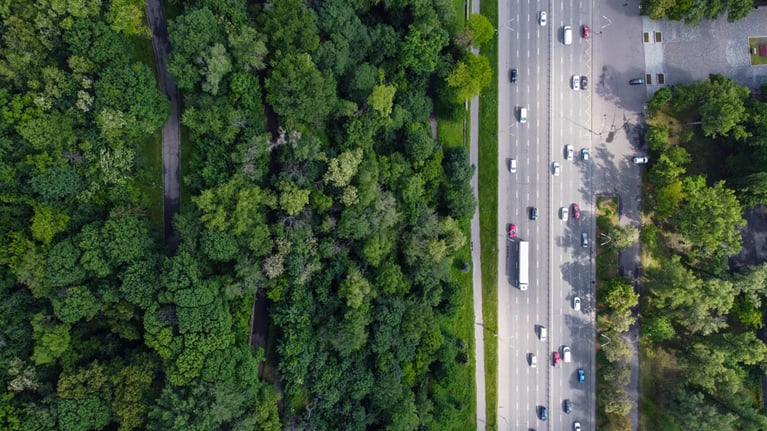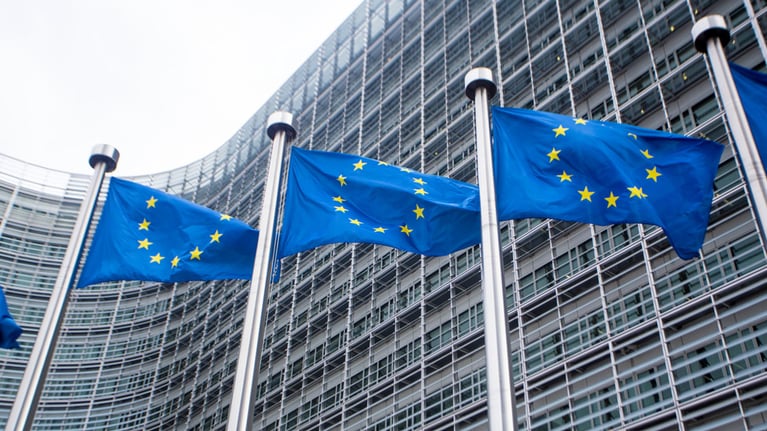COP26 is underway and is being sighted as the most important climate discussion since the Paris accord back in 2015. The main focus is on ensuring the world stays within the critical +1.5 Celsius warming threshold, with the primary focus to achieve this being net zero by 2050.
The transportation industry is responsible for vast emissions, which need to be actively addressed and doing so is going to take a herculean effort from everyone involved in the sector. As a medium-sized business in the industry, we know we’re central to that and are already rising to the challenge.
Initiatives include moving to hydrogen-based lorries/trucks.
Shipping alone is estimated to generate almost 3% of the global greenhouse gas (GHG) according to a recent report by risk management firm DNV. A recent announcement by a group of nine international companies such as Unilever, Amazon and IKEA have committed to transition their ocean freight to zero-carbon shipping by 2040. These companies are members of The Cargo Owners for Zero-Emission Vessels (coZEV), a platform for climate-forward cargo owners to develop concrete collaborative projects to advance zero-carbon solutions.
Air travel including air freight is one of the fastest-growing sources of emissions and this sector will be particularly difficult to decarbonise and battery/hydrogen planes are a fair way off.
As a business, we are on a mission to do better and live by our values of being ethically responsible, caring for our world and giving back.
Delving into the world of Corporate Social Responsibility (CSR) and Environmental, Social and Governance (ESG) is tricky. Knowing where to start can be overwhelming, but something we take extremely seriously. This is why WTA Group is collaborating with Muryel Boulay from B Other Wise Ltd, to help us achieve our ambitious goals and scalable solutions that will have a positive impact on people, the community and the planet.
We spoke with Muryel on matters surrounding CSR/ESG and how companies can get more involved:
Could you provide us with an overview of what ESG is and why it matters?
With COP26 taking place, it has really highlighted the conversation around the UN's Sustainable Development Goals (SDGs), which COP26 will look be looking at all 17 of including education, fair employment and environment.
It needs to be a grassroots movement. COP26 is going to be extremely important but with countries such as China and Russia not attending, we cannot just rely on governments alone. Every individual and business needs to play their part.
Collaboration is also going to be critical to ensure that we are all actively moving towards the 17 SDGs.
How can small to medium-sized organisations get more involved in an ESG/CSR programme?
It's not necessarily the words that matter but how businesses manage their impact on the environment, on people and the wider community. In simple terms, it is the 3P's - People, planet and profit. Profit can often be seen as a dirty word but without profit, it is more difficult to do good, you could be a community orientated business but you still make a bit of profit so that you can reinvest back into the community. If you have a good performing business you can have a greater impact, a more positive impact and the governance helps you to generate profit in a way that can help take care of the planet and people.
Currently, we are working with you to achieve the CSR Accreditation, what exactly does this entail and what does it mean if a company has CSR Accreditation?
Going forward a CSR programme isn't going to be nice to have, it is going to be essential. For example in public procurement, the social value represents a 10% weighting of a decision and it can go up to 30%, which is quite significant. If you want to pitch for work you need to have an ESG/CSR credential so that you can clearly demonstrate all the good work you are doing. Soon enough it will not be an option, it will be the way business is done.
The CSR accreditation was built around 4 years ago in the UK but is recognised worldwide. The accreditation is based on 4 pillars.
- Environment
- Workplace
- Community
- Philanthropy
The CSR Accreditation provides an open framework. It is about providing guidance rather than being prescriptive, allowing companies to record all the good things that they are doing under each pillar. Based on the activity under each pillar you are either awarded a bronze, silver or gold accreditation which is valid for 3 years.
How can WTA Group go greener working with our customers and suppliers within WTA's Visibility Platform?
Currently, your carbon calculator measures the CO2 output based on a clients logistics route (sea freight/air freight/ road freight). The aim is to not only measure and provide feedback but to be more proactive when at the planning/quote stage to provide options of the greenest route available. Many supply chains can cope with a longer timeframe as long as it is factored in during the planning stages.
Another element that follows on from this, is colour coding the routes in the future. For instance, a Red route emits the most amount of greenhouse gases and a Green route emits the least amount.
What are the next steps for a greener company?
Undertaking a materiality analysis, looking at where we currently stand. Then with stakeholder engagement, it is important to understand where you want to be going forward, setting goals such as:
- Consider switching to a green bank. Many banks finance the fossil fuel industry.
- Researching a green energy provider.
- Active travel - Cycle to work initiative.
- Switching company cars to Electric Vehicles (EVs) - Already established in 2020.
- Sustainable pension funds for the business.
Any steps in a CSR journey is all about creating a strategy that is both practical and manageable for the business.







